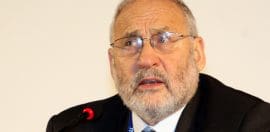The alliance promising to deliver a sustainable economy for Australia

20 October 2021 at 9:26 pm
“If we don’t take transformative action on climate change now, Australia risks missing out on the substantive economic opportunity, jobs creation and broader environmental co-benefits of a carbon neutral future.”
A group of high profile business leaders, industry and community groups are committing to a five-year alliance they hope will lead Australia’s sustainable economy transformation.
Engineers Australia, the Planning Institute of Australia, the Australian Youth Affairs Coalition and the Infrastructure Sustainability Council are among the first to join Climate Ready Australia 2030 (CRA2030), a flagship project of Griffith University’s Climate Ready Initiative (CRI).
CRI is chaired by the head of Impact Strategist, Rosemary Addis AM, who said that the project would bring together sectors that are critical to the economy and the community, breaking down the silos between them and coming up with a common agenda.
“This alliance is really actively looking to cross the environmental, social and economic worlds and… to halt the effects of climate change and the progression of climate change in a way that doesn’t leave anyone behind,” she said.
“It pays attention to the social and community dynamics and drives good opportunities for the economy as well.”
She said it would bring together and strengthen the work that was already happening in the climate response space.
“For example, The Planning Institute planners have been leaders in taking action to improve climate outcomes in planning decisions and the built environment,” Addis said.
“So what we are now doing is sharing that understanding with other peaks and industry bodies, getting the groups to work together so that there’s more effective cross-sectoral strategies.”
She said that without a solid plan in place for Australia to transition to a net-zero future, the country would miss out on major economic opportunities.
“If we don’t take transformative action on climate change now, Australia risks missing out on the substantive economic opportunity, jobs creation and broader environmental co-benefits of a carbon neutral future,” she said.
“Australia currently lacks a plan for how to deliver our carbon commitments while ensuring that 25 million Australians are better off in five, 20 and 50 years time.”
Professor Brendan Mackey, CRI deputy-chair and director of the Griffith Climate Action Beacon, said that Griffith University would provide a neutral platform to facilitate dialogue and collaboration between business, government and community, as well as helping ensure deliberations are informed by robust evidence.
Addis said that “while no one had all the answers”, it was important that all hands were on deck to find transformative solutions to the looming climate crisis.







